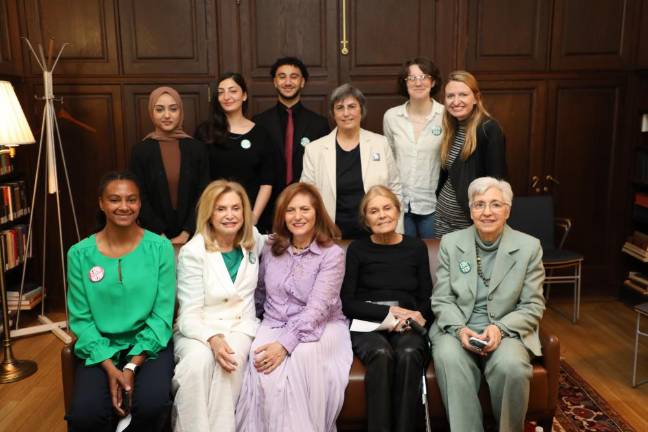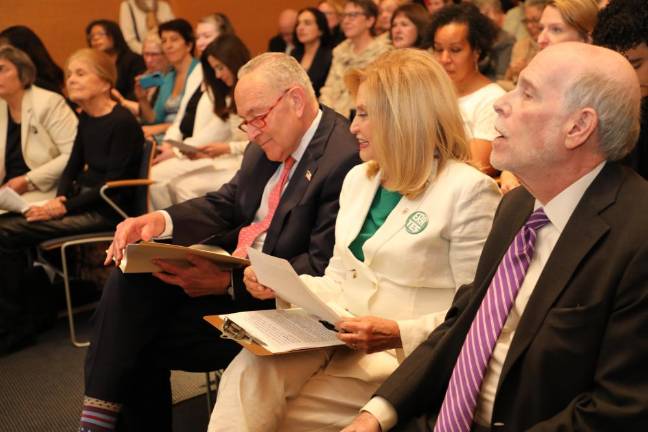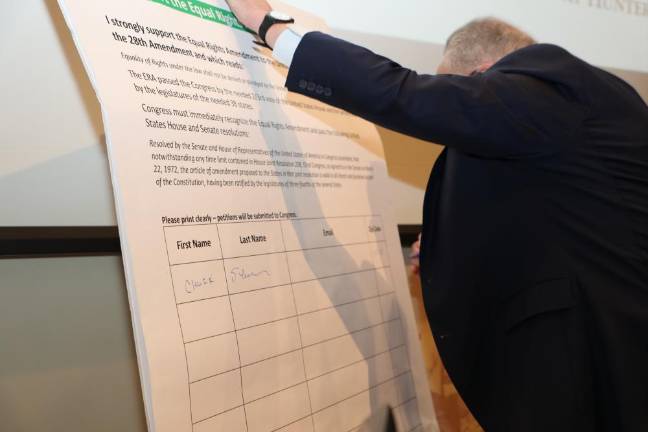Maloney launches ‘Sign for the ERA’ petition drive
The ERA was approved by congress in 1972 and sent to the states for ratification with a deadline that was originally 7 years, and later extended to 10 years. Since then, 38 states have ratified the amendment, the number needed for it to become part of the Constitution. Scholars say that if Congress amends the initial legislation to remove the deadline, the ratification can be recognized.
Former Congresswoman Carolyn B. Maloney recently launched a petition drive to support legislation removing the deadline standing in the way of the Equal Rights Amendment (ERA) becoming the 28th Amendment to the U.S. Constitution.
Maloney, now serving as Eleanor Roosevelt Distinguished Leader in Residence at Hunter College’s Roosevelt House Public Policy Institute, was joined by Majority Leader Chuck Schumer for the petition’s launch. Schumer pledged that there would be a vote this week to remove the deadline preventing the ERA from being recognized as ratified.
“It’s a really good morning and such music to my ears to hear Senator Schumer announce the very first vote in 40 years on the Equal Rights Amendment in the U.S. Senate. Following the Dobbs decision, my daughters have fewer rights now than I did at their age,” Maloney said at the announcement. “With 14th amendment equal protection rights under attack at the Supreme Court and the possible rollback of the FDA’s approval of mifepristone, it is clear that we must have the ERA to secure women’s equality. We can only restore and enforce the rights of millions of Americans—regardless of gender—by cementing the ERA in the Constitution.”
The petition was created by four Hunter College Eva Kasten Grove fellows: Asia Khan, Lyle Reed, Maya Mouldi, and Andrew Loka.
In addition to Majority Leader Schumer, Maloney was joined at the event by Hunter College President Jennifer Raab, Gloria Steinem, Feminist Majority Foundation President Eleanor Smeal, ERA Coalition President Zakiya Thomas, National Organization for Women President Christian F. Nunesm, and Aarush Santoshi, the national policy director of Generation Ratify.


